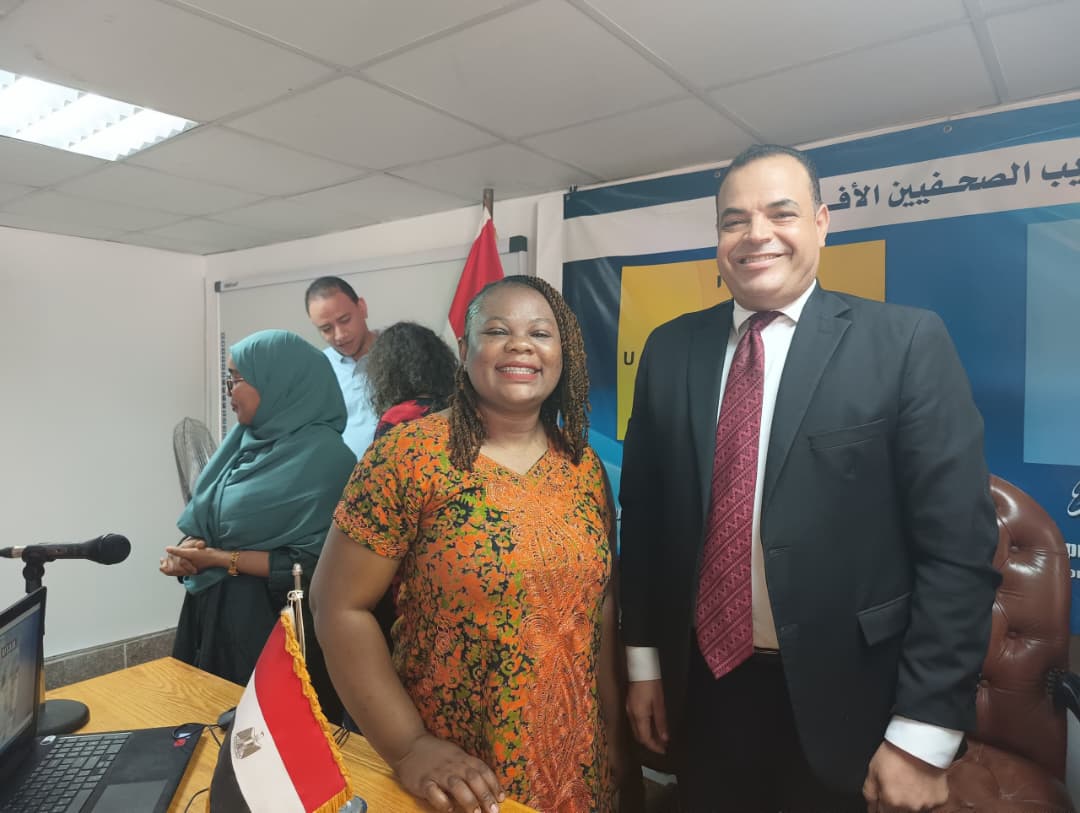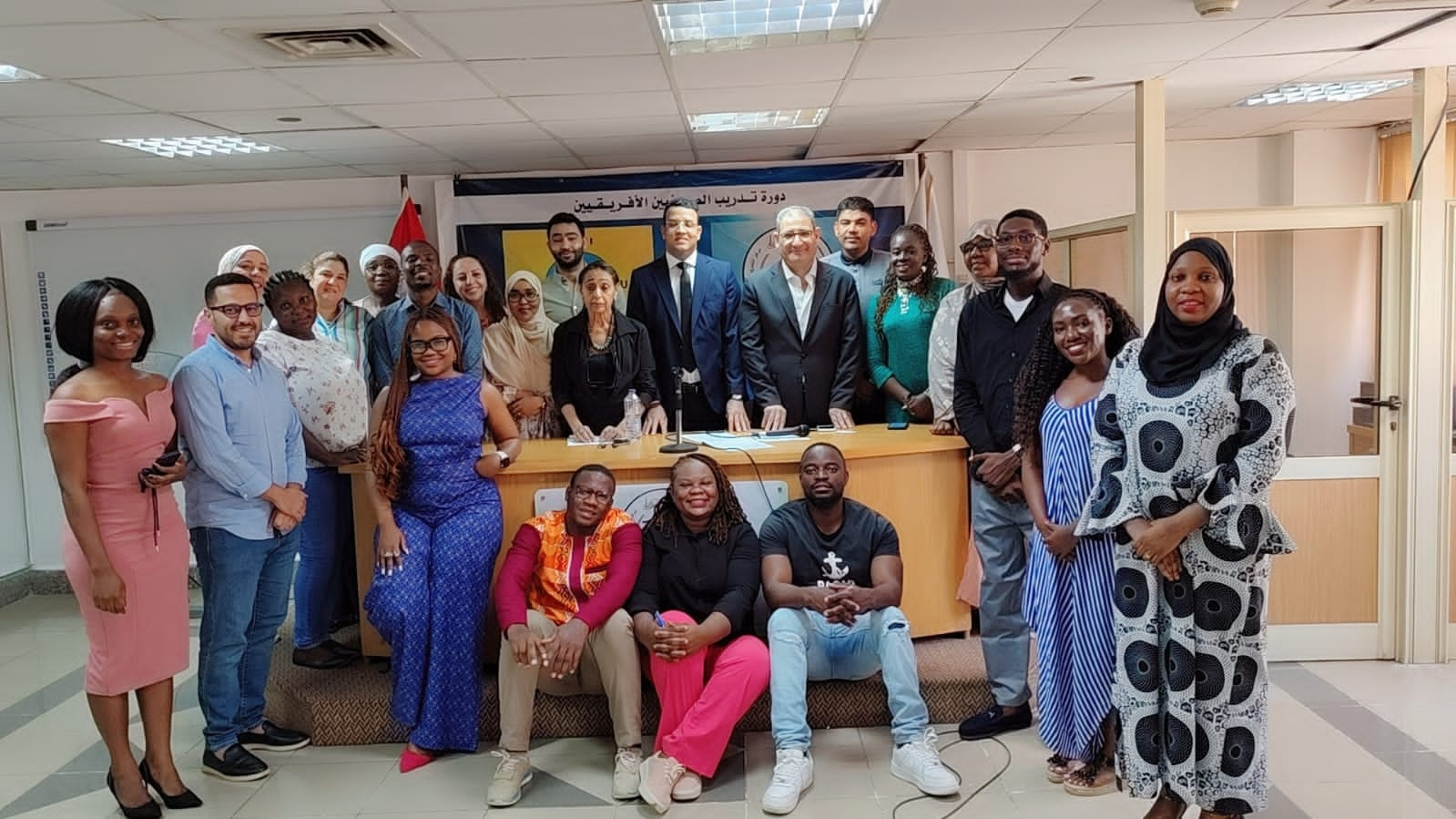FUMBE CHANDA
Egypt
THE vibrant heart of Cairo welcomed media professionals from across the continent as the 61st session of Union of African Journalists (UAJ) officially opened, marking a pivotal moment for African journalism.
The three-week programme brought together 22 journalists from 20 African nations, including Zambia’s representative from Zambia Daily Mail, in a bold effort to strengthen the continent’s media voice alongside Egyptian media leaders.
Speaking on behalf of Egypt’s Supreme Council for Media Regulation, Reem Hindi reaffirmed her country’s commitment to empowering African journalists through training and collaboration.
“This initiative of the UAJ is about equipping our journalists with the tools and resilience needed to navigate the evolving global media landscape,” she said.
Al-Ahram Weekly editor-in chief Ezzat Ibrahim delivered a speech on behalf of UAJ president Mahfouz al-Ansary, who reminded participants of the union’s founding mission: to defend press freedom, foster collaboration, and embed ethical values in journalism.
“In today’s turbulent world, governed by the revolution of leadership. information and the speed of news circulation, we need a principled press that safeguards truth and empowers society,” he stressed.
Training sessions covered topics such as African Continental Free Trade Area (AfCFTA), reporting in conflict zones, cultural diplomacy, and human rights.
Former OAU assistant secretary-general and UAJ advisor, Ahmed Haggag, underscored the urgent need for African solidarity in the face of terrorism, political instability, and inequality.
He warned that Africa’s biggest threat was no longer border disputes but extremist groups that undermine governments and devastate civilian lives. Citing Sudan as a tragic example of wasted potential, he said:
“It is the biggest country in Africa, with the potential to be one of the richest, yet torn apart by internal conflict. The aim of these forces is not governance, but destruction.”
Drawing from Egypt’s experience in defeating the destabilising Muslim Brotherhood, Mr Haggag urged other African nations to prioritise peace and inclusive governance.
He also criticised the neglect of gender and youth inclusion across the continent.
“We are losing the contributions of almost half our population,” he warned, noting the under-representation of women in politics and Highlighting AfCFTA as a framework for regional growth, he said integration must be understood as both an economic and political imperative:
“We must overcome sub-regional divisions and build a unified African market.” Psychologist and scholar Dr Baraa Jassim challenged African media professionals to harness soft power, celebrate cultural heritage, and reshape global perceptions of the continent.
“We need to teach our kids what Africa is. We need to be proud of Africa and teach that in schools. We are the carriers and ambassadors of the message,” she said.
Dr Jassim criticised international media’s tendency to spotlight Africa’s flaws while overlooking its achievements.
She urged journalists to inspire future generations by writing truthfully and boldly, telling stories that capture Africa’s richness.
For many participants, the programme was transformative. Ghana’s Nicholas Azibire, of Dreamz Radio described it as a “significant learning experience”, urging young journalists to focus more on reporting Africa’s progress.
“There is a call for us to take charge of the African narrative, and I believe journalists have a key role to play in achieving that,” he said.
Uganda’s Olivier Nakanwagi of Daily Monitor, echoed similar sentiments, noting that the training had sharpened her capacity to report with depth, accuracy, and impact on issues such as democracy, human rights, and development.
“This programme has been an eye-opener for me on issues affecting African countries. As journalists, we must also use soft power to create a better image of our continent,” she said.
The opening ceremony was attended by prominent figures, including UAJ secretary general Samia Abbas; Amal Abdel Muttalib, director general of the Media Training and Studies Centre; and members of the union’s technical secretariat.
UAJ, a pan-African organisation committed to promoting press freedom and professional standards, used the 61st session to reaffirm Africa’s determination to shape its own media destiny through unity, training, and a shared commitment to excellence in reporting.


